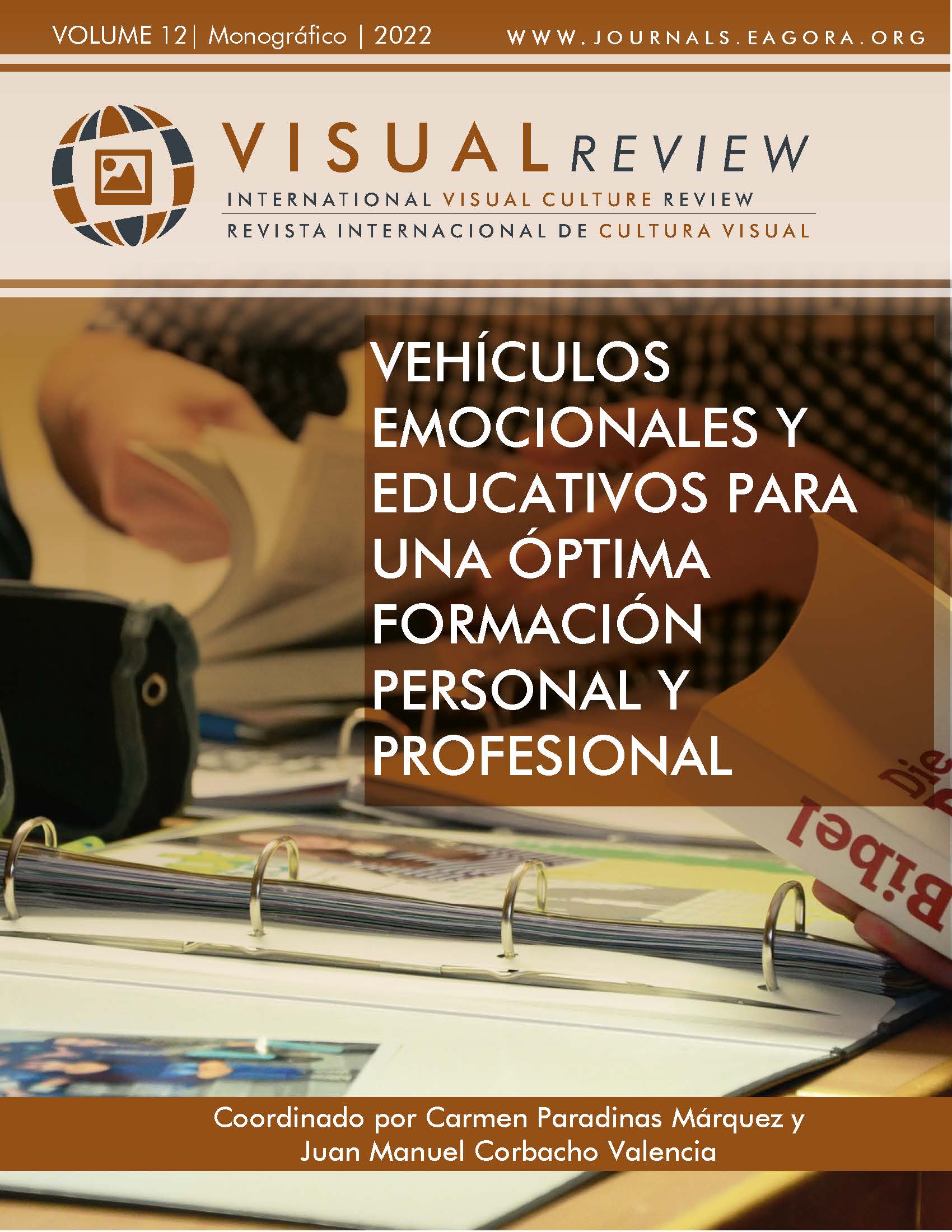Pensamiento lógico y programática computacional en estudiantes de ingeniería
DOI:
https://doi.org/10.37467/revvisual.v9.3784Palabras clave:
Pensamiento, Pensamiento Lógico, Programática Computacional, Comunicación, Enseñanza Ingeniería, Estudiantes IngenieríaResumen
Los propósitos de los estudios sobre pensamiento lógico computacional prevén que es posible investigar con esfuerzos experimentales, las habilidades previas de lógica y matemática para estudiantes de ingeniería con paquetes de software y aplicaciones, en forma paralela dar soporte a los estudios universitarios de nivel superior, se logró que docentes impacten con co-creación, siendo colaborativo su trabajo de liderazgo, así como motivador y director, con usos de programática computacional, las herramientas analíticas integradas en capacidades de estudiantes, no solo permitió colaboración, también desarrollos y progreso para construir su propio conocimiento, en un proceso descrito por la teoría pedagógica del construccionismo.
Descargas
Estadísticas globales ℹ️
|
856
Visualizaciones
|
774
Descargas
|
|
1630
Total
|
|
Citas
Chan, S.-W., Looi, C.-K., Ho, W. K., Huang, W., Seow, P., & Wu, L. (2021). Learning number patterns through computational thinking activities: A Rasch model analysis. Heliyon, 7(9), e07922. https://doi.org/10.1016/j.heliyon.2021.e07922 DOI: https://doi.org/10.1016/j.heliyon.2021.e07922
Disessa, A. A. (2004). Metarepresentation: Native competence and targets for instruction. Cognition and instruction, 22(3), 293-331. DOI: https://doi.org/10.1207/s1532690xci2203_2
Hooshyar, D., Malva, L., Yang, Y., Pedaste, M., Wang, M., & Lim, H. (2021). An adaptive educational computer game: Effects on students’ knowledge and learning attitude in computational thinking. Computers in Human Behavior, 114, 106575. https://doi.org/10.1016/j.chb.2020.106575 DOI: https://doi.org/10.1016/j.chb.2020.106575
Kazimoglu, C., Kiernan, M., Bacon, L., & Mackinnon, L. (2012). A Serious Game for Developing Computational Thinking and Learning Introductory Computer Programming. Procedia - Social and Behavioral Sciences, 47, 1991-1999. https://doi.org/10.1016/j.sbspro.2012.06.938 DOI: https://doi.org/10.1016/j.sbspro.2012.06.938
Kong, S. C., & Wang, Y. Q. (2020). Formation of computational identity through computational thinking perspectives development in programming learning: A mediation analysis among primary school students. Computers in Human Behavior, 106, 106230. https://doi.org/10.1016/j.chb.2019.106230 DOI: https://doi.org/10.1016/j.chb.2019.106230
Kong, S. C., & Wang, Y. Q. (2021). Item response analysis of computational thinking practices: Test characteristics and students’ learning abilities in visual programming contexts. Computers in Human Behavior, 122, 106836. https://doi.org/10.1016/j.chb.2021.106836 DOI: https://doi.org/10.1016/j.chb.2021.106836
Kong, S.-C., Lai, M., & Sun, D. (2020). Teacher development in computational thinking: Design and learning outcomes of programming concepts, practices and pedagogy. Computers & Education, 151, 103872. https://doi.org/10.1016/j.compedu.2020.103872 DOI: https://doi.org/10.1016/j.compedu.2020.103872
Lei, H., Chiu, M. M., Li, F., Wang, X., & Geng, Y. (2020). Computational thinking and academic achievement: A meta-analysis among students. Children and Youth Services Review, 118, 105439. https://doi.org/10.1016/j.childyouth.2020.105439 DOI: https://doi.org/10.1016/j.childyouth.2020.105439
Leonard, J., Mitchell, M., Barnes-Johnson, J., Unertl, A., Outka-Hill, J., Robinson, R., & Hester-Croff, C. (2018). Preparing Teachers to Engage Rural Students in Computational Thinking Through Robotics, Game Design, and Culturally Responsive Teaching. Journal of Teacher Education, 69(4), 386-407. https://doi.org/10.1177/0022487117732317 DOI: https://doi.org/10.1177/0022487117732317
Lu, J., & Law, N. (2012). Online peer assessment: Effects of cognitive and affective feedback. Instructional Science, 40(2), 257-275. https://doi.org/10.1007/s11251-011-9177-2 DOI: https://doi.org/10.1007/s11251-011-9177-2
Marcelino, M. J., Pessoa, T., Vieira, C., Salvador, T., & Mendes, A. J. (2018). Learning Computational Thinking and scratch at distance. Computers in Human Behavior, 80, 470-477. https://doi.org/10.1016/j.chb.2017.09.025 DOI: https://doi.org/10.1016/j.chb.2017.09.025
More, R. A. (2018). Engineering techniques and methods for the process of teaching and learning in Information and Communication Technologies using social video in students of the University of Piura. 2, 139-143. Scopus.
Papert, S., & Harel, I. (1991). Situating constructionism. Constructionism, 36(2), 1-11.
Relkin, E., de Ruiter, L. E., & Bers, M. U. (2021). Learning to code and the acquisition of computational thinking by young children. Computers & Education, 169, 104222. https://doi.org/10.1016/j.compedu.2021.104222 DOI: https://doi.org/10.1016/j.compedu.2021.104222
Tikva, C., & Tambouris, E. (2021). A systematic mapping study on teaching and learning Computational Thinking through programming in higher education. Thinking Skills and Creativity, 41, 100849. https://doi.org/10.1016/j.tsc.2021.100849 DOI: https://doi.org/10.1016/j.tsc.2021.100849
Tucker-Raymond, E., Cassidy, M., & Puttick, G. (2021). Science teachers can teach computational thinking through distributed expertise. Computers & Education, 173, 104284. https://doi.org/10.1016/j.compedu.2021.104284 DOI: https://doi.org/10.1016/j.compedu.2021.104284
Willermark, S. (2018). Technological Pedagogical and Content Knowledge: A Review of Empirical Studies Published From 2011 to 2016. Journal of Educational Computing Research, 56(3), 315-343. https://doi.org/10.1177/0735633117713114 DOI: https://doi.org/10.1177/0735633117713114
Yadav, A., Mayfield, C., Zhou, N., Hambrusch, S., & Korb, J. T. (2014). Computational Thinking in Elementary and Secondary Teacher Education. ACM Transactions on Computing Education, 14(1), 5:1-5:16. https://doi.org/10.1145/2576872 DOI: https://doi.org/10.1145/2576872
Descargas
Publicado
Cómo citar
Número
Sección
Licencia
Los autores/as que publiquen en esta revista aceptan las siguientes condiciones:
- Los autores/as conservan los derechos de autor.
- Los autores/as ceden a la revista el derecho de la primera publicación. La revista también posee los derechos de edición.
- Todos los contenidos publicados se regulan mediante una Licencia Atribución/Reconocimiento-SinDerivados 4.0 Internacional. Acceda a la versión informativa y texto legal de la licencia. En virtud de ello, se permite a terceros utilizar lo publicado siempre que mencionen la autoría del trabajo y a la primera publicación en esta revista. Si transforma el material, no podrá distribuir el trabajo modificado.
- Los autores/as pueden realizar otros acuerdos contractuales independientes y adicionales para la distribución no exclusiva de la versión del artículo publicado en esta revista (p. ej., incluirlo en un repositorio institucional o publicarlo en un libro) siempre que indiquen claramente que el trabajo se publicó por primera vez en esta revista.
- Se permite y recomienda a los autores/as a publicar su trabajo en Internet (por ejemplo en páginas institucionales o personales), una vez publicado en la revista y citando a la misma ya que puede conducir a intercambios productivos y a una mayor y más rápida difusión del trabajo publicado (vea The Effect of Open Access).













